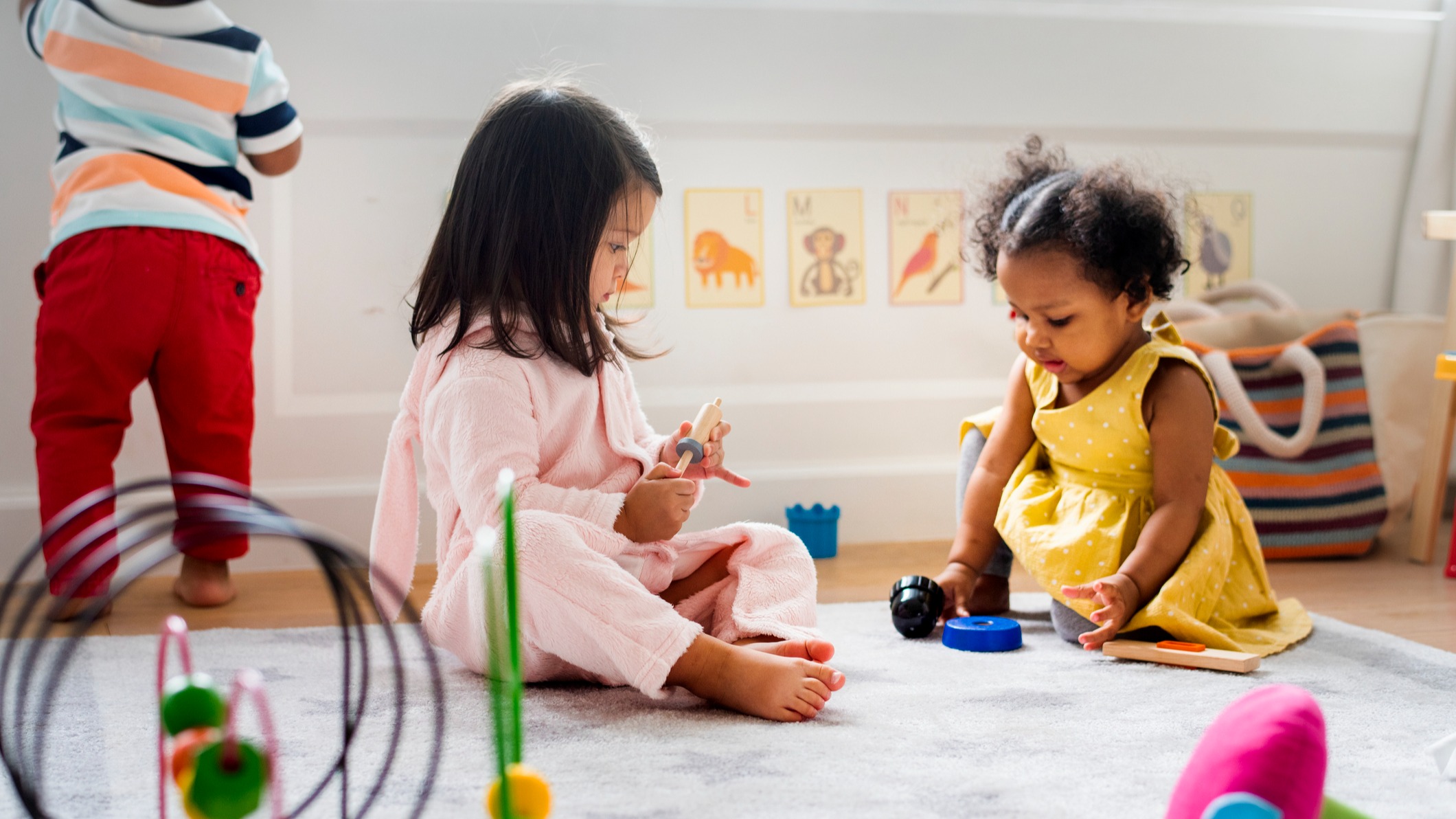
In this article
The pandemic taught us a lot of things, like how to properly wash your hands and the importance of social distancing to avoid spreading germs. But for kids born during the lockdown, they didn’t get the chance to learn important social skills that help humans make friends.
Now that the pandemic is over, it’s clear that there is some catching up to do. Yet “the opportunity to learn and practice social skills in a group setting is especially important for newborns born during the pandemic,” Daniel Adams of Still Water Wellness told Mom.com. Here’s what you can do to help.
Social-emotional development
You may need to start at the beginning to establish or reestablish friendships for your child. This might take place in the form of practicing and learning how to introduce themselves to you and other family members. Work with your child on simple conversation starters such as, “Hello, my name is… What’s yours? Can I play with you?” As simple as this seems, you’ll find that practicing it will go a long way to helping your child overcome some of their fears when meeting a new child.
This is an important step in building their social-emotional development. While basic introduction skills can help teach young kids how to start a conversation, it can also be scary.
You should also prepare your child for negative responses. Some kids might not be ready to play together or share. In these situations, you’ll want to advise your child that it’s OK if the other child doesn’t want to play, and remind them not to let negative experiences ruin their day.
How to improve social skills
One of the best ways to improve social skills is by modeling them for your child. This means showing yourself being open to new friendships and risking negative responses. Demonstrate to your child that you are open to doing new things and activities where you meet new people. Make sure that your child sees and hears you as you introduce yourself to others and start a conversation.
Engage in group activities that have you interacting with others. By doing so, you give your child the OK to be open and engage with others as well. Remember that your child is paying attention to everything you are doing. So, if you are off to the side in a corner, minding your own business and not engaging with others, your child will take this as what they should do. It may take stepping out of your comfort zone a bit, but this will be rewarding for both you and your child. You’ll expand your network, and your child will see firsthand how to make new friends.
Preschoolers have opportunities to socialize
As your child grows, there are more opportunities to socialize. You can sign your child up for preschool where there is organized group activities and a teacher who facilitates interactions and making friends. Sheelay McCaughan has two pandemic babies and finds that preschool has helped a lot. “Both my babies are in preschool programs now and have their own little social circle,” she says. But their social skills are different from each other. “My youngest definitely takes longer to warm up to new situations than my older one does,” she continued.
Remember that each child has their own natural inclinations to socialization. Some children will always find it difficult to make new friends, while others eventually warm up.
Finding the right preschool that fits your values and educational goals for your child can be challenging. This was true well before the pandemic. But take your time to ask questions on how the school aids children struggling with social skills. A nurturing, inclusive environment is important to help pandemic babies step out of their shells and engage with their peers. Once they start, they’ll begin to form bonds with new friends and see the rewards of socializing.




